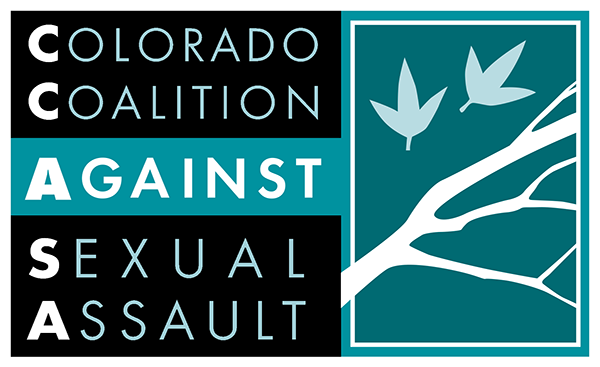FOR IMMEDIATE RELEASE
August 5, 2020
CCASA LEADS SEXUAL MISCONDUCT ADVISORY COMMITTEE IN RESPONSE TO FEDERAL CHANGES TO TITLE IX
Committee publishes recommendations in response to federal changes to advise policy & procedural implementation for CO institutions of higher education
In November 2018, the federal Department of Education (DOE) proposed new rules to Title IX that left many student survivors of sexual harassment and assault feeling frustrated and confused by unclear reporting processes. The proposed rules significantly weakened protections for students experiencing sex-based discrimination on campuses – tipping the scales on fairness in favor of respondents. In May of this year, the Department issued its final rules on Title IX, which, despite over one hundred thousand comments submitted by survivors and advocates from across the country in opposition, is largely identical to the 2018 proposed draft.
The Colorado Department of Higher Education’s Sexual Misconduct Advisory Committee, co-chaired by CCASA’s Director of Policy, Raana Simmons, and comprised of representatives from institutions of higher education, advocates, and attorneys, provided recommendations to the Education Committees of the Colorado General Assembly and all Colorado institutions of higher education yesterday to provide guidance for institutions to ensure fair processes and procedures for Colorado students related to Title IX.
CCASA is strongly committed to a Colorado solution to address sexual violence on campuses and supported Senate Bill 007 in 2019, which strengthened protections for Colorado students. As a result of the passage of this bill, the General Assembly created and tasked the Sexual Misconduct Advisory Committee with quickly making recommendations on the anticipated Title IX changes. Following intensive review of the new Title IX rule, which includes over 2000 pages of summaries, the Advisory Committee provided a total of fifteen detailed recommendations.
“Frequent changes in the interpretation of Title IX have highlighted the need for Colorado to clarify our own process to handle sexual violence in educational settings,” states Simmons. “Given the diverse representation of institutions on the Advisory Committee, we expect many, if not all, of Colorado’s institutions of higher education will adopt the recommendations as outlined in the report.”
The recommendations issued by the committee are a uniquely Colorado solution created and agreed upon by victim advocacy groups and institutions of higher education to address campus sexual misconduct. The goal is to create clear and consistent policies to support survivors, as well as establish fairness in procedures, and ensure safe and meaningful access to education for all students. CCASA is proud to lead this effort and we believe these recommendations will help to support institutions as they begin to implement new policies and procedures required by the DOE.
##
Interviews with CCASA staff available upon request
Contact: Jolene Cardenas,
Director of Communications and Community Engagement
Colorado Coalition Against Sexual Assault (CCASA)
Direct Line: 720.330.8922
Email: jolene@ccasa.org
Website: www.ccasa.org

